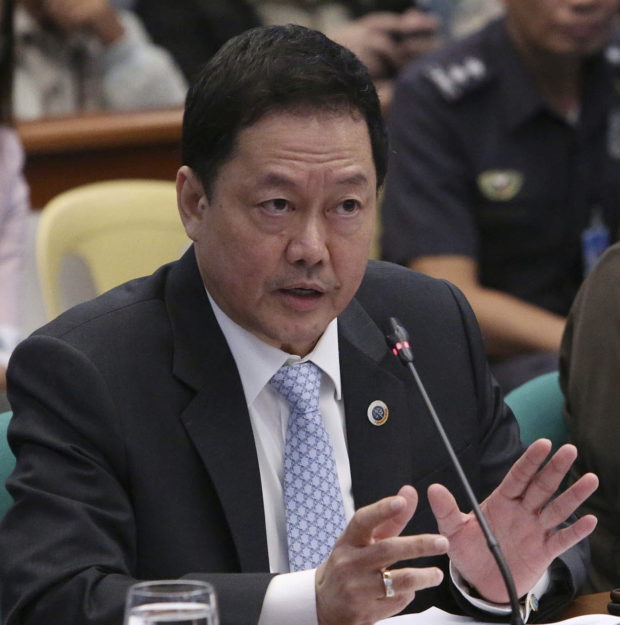
Justice Secretary Menardo Guevarra. INQUIRER file photo / MARIANNE BERMUDEZ
MANILA, Philippines–Checking the profiles of organizers of community pantries could violate the Data Privacy Law, Justice Secretary Menardo Guevarra said Thursday.
“Possibly the Data Privacy Law depending on the kind of personal data obtained without the consent of the person concerned, and the purpose for which the data was obtained,” Guevarra told reporters.
Republic Act 10173 or the Data Privacy Act of the Philippines protects individuals from unauthorized processing of personal information that is “1. private, not publicly available; and 2. identifiable, where the identity of the individual is apparent either through direct attribution or when put together with other available information.”
Earlier, Lt. General Antonio Parlade Jr., Spokesperson of the National Task Force to End Local Communist Armed Conflict (NTF-Elcac) said they are “checking the background” of those behind the highly-popular community pantries.
Community pantry, that provides the basic necessities for the people badly affected by the pandemic started at Maginhawa in Quezon City mushroomed to over a hundred pantries nationwide.
Parlade said they opt to check “because there are sectors trying to exploit” the situation.
READ: Parlade: ‘We’re just checking background’ of people behind community pantries
The Maginhawa community pantry temporarily closed a few days ago after Ana Patricia Non was red-tagged as having alleged ties with the communist movement. Then, another community pantry organizer in Manila was allegedly harassed and asked to fill out a police form.
What to do when asked about your personal information?
Integrated Bar of the Philippines Atty. Domingo Egon Cayosa said the people can seek the assistance of the National Privacy Commission.
“I hope by now they all know that they [the people] need not answer, they need not give those details sa kahit pulis kung wala namang legal na basehan [even to the police if there is no legal basis],” Cayosa said.
“We have a basic constitutional right to privacy. Privacy not only in our houses, in our offices but also privacy to the information, personal information. And nobody has the right to demand that of us unless there’s a clear legal basis. In this particular case, the PNP has yet to provide a clear legal basis. Merong court order ba? [Is there a court order?] Was there a crime committed,” he added.
In case the police were able to get information about the organizers, Cayosa said “information that was taken y the police officers, they can request that this data be deleted.”
File a complaint
Guevarra said the organizers could like take legal recourse depending on the type of complaint.
“If it’s a criminal complaint, they file before the Prosecutor’s Office. If it is a civil complaint for injunction and damages, they can directly go to court. If it is an administrative complaint, they can go to the PNP/Department of the Interior and Local Government (DILG) or the Armed Forces of the Philippines (AFP), as the case may be,” Guevarra added.
Like Guevarra, Cayosa said harassments against community organizers should stop by taking legal action.
“Violation of the Constitutional right of citizens and that’s punishable or will be liable for damages under the human relations provisions of the Civil Code. And thirdly, they can be administratively liable under the [Anti-Graft and Corrupt Practices Act],” Cayosa said.
RELATED STORIES:
DILG probes ‘police profiling’ of Maginhawa community pantry organizer
NPC to PNP: Probe alleged profiling of community pantry organizers